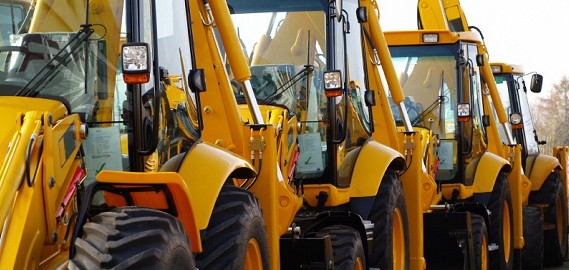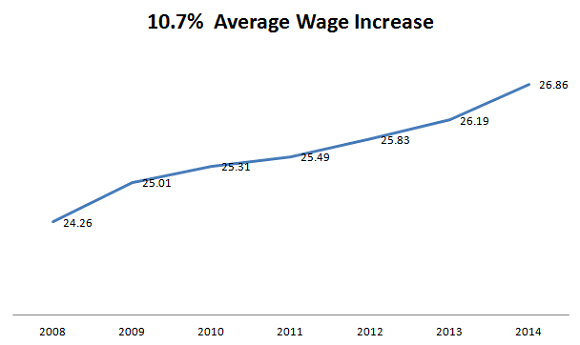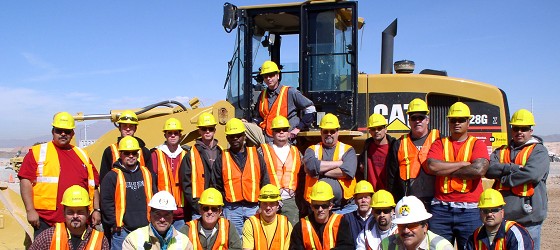
When the people of Seattle, Washington, decided that the Federal Minimum Wage of $7.25 an hour, which adds up to an annual gross of $15,080 for a full-time job, was unjust and that they would increase it to $15 over three years, critics went into an uproar.
Wall Street economists confidently predicted disaster, asserting that a higher minimum would force employers to eliminate jobs, defeating the proponents’ objective to relieve poverty.Then, when the nearby town of Seattle-Tacoma decided to skip the phase-in and raise the minimum to $15 overnight, prognosticators were certain the sky would fall. They leapt to the defense of Alaska Airlines, which refused to comply (the airport is in Seattle-Tacoma, but since it’s run by the Port Authority they felt the law shouldn’t apply to them) and is still in court about it.
But the Seattle City council was not yet satisfied that it had adequately protected local workers. When it discovered that much of the extensive construction going on across their city was being done by workers from out of the area, they decided to require all tax-funded construction projects in the city to hire local workers – at the prevailing rate, which is considerably higher than the minimum wage.
The ultimate result of both these actions was not what anyone expected.
As we slowly, tentatively emerge from the recession, nationwide construction seems to be lagging and perhaps even dragging. Former Federal Reserve Chairman Alan Greenspan told Bloomberg that construction is “dead in the water.”
But rather than attribute its slower growth to the fact that housing starts are still well below their 20-year average and that the dollar amount of new mortgages this year is 39% less than last year, he said that builders are “so uncertain about the distant future” that they won’t invest in their companies now.
That may be the media’s prevailing story, but heavy equipment dealers know that the real problem is the lack of an experienced labor force from which contractors can draw, and that while wages may be part of the solution they’re not all of it. In fact, according to the Bureau of Labor, the average wage for construction workers has risen nearly 11% since the beginning of the recession, reaching $26.86/hour this year.

So how come there’s so little construction work?
The Associated General Contractors conducted a survey to help figure that out, focusing on contractors with less than $30 million in annual revenues, with fully 35% of their respondents being those companies that form the backbone of the American construction industry, earning in the $10 million range.
The short answer is there are too few qualified professionals. Nearly half of the contractors have a hard time finding project managers, for example, a position usually filled with seasoned leaders.
But it’s even harder to find a crew for them to lead, with two thirds of companies saying they can’t find carpenters or roofers, three out of five can’t find equipment operators, more than half can’t find plumbers – the list goes on. And nearly a third of them think the situation will get worse – even though three in five have tried to obtain skilled crew members by offering more money.
Thirty percent said they had to turn down jobs because they didn’t have the workers to handle them.
But, by far, the most telling discoveries in the survey indicate what these scarce, skilled professionals are actually doing.
Are they gaming contractors and moving to the highest bidder? Yes, of course they are – more than two in five of the respondents said they lost people to competitors who made better offers.
But did they leave construction? No, they didn’t – fewer than a quarter of respondents said they lost people to other industries.
And this is where heavy equipment dealers might find their best short-term sales opportunities.
Many of your clients had an epiphany at some point in their life that went something like this: “Why am I working for So-and-so when I could be working for myself?”
Currently the construction industry offers more incentive to the entrepreneurial spirit than it has in perhaps over a decade.
There’s a perfect collusion of good fortune:
First, the recession is six years old and counting, so a lot of people who may not have qualified for financing a few years ago are just now getting back into the game.
Second, greater fiscal conservatism nationwide means homeowners are more likely to invest in their property than to move, creating a plethora of the small jobs that most construction entrepreneurs use to get started.
Third, fuel prices have cratered and it is likely that they will remain around the level they are now for the foreseeable future – probably long enough for a new contractor to complete a few jobs with a higher profit margin.
Fourth, your employee might find it easier to hire someone than you do. He can promise more – above board he can offer the potential to become a profit participant and the potential to gain a broader range of skills. Just below it, he can pay in cash and let the employee worry about benefits, retirement, and the IRS. Even if he’s only paying the minimum wage, cash often looks liberating to a young worker just starting out in the industry.
And fifth, today your bigger clients hire subcontractors at a fantastic clip. Half of them solve their skilled worker problems this way. That means that the moment a newly minted entrepreneur has his license and insurance in order he’ll be picking and choosing which bids he wants to land.

This could be why nine out of the top ten selling machines in 2014 have the word “compact” in their name – right now the hottest buyers are the ones getting started.
More established firms may be holding on to their equipment to wait for Tier 4 upgrades and for the international used market to come back to life. Once those two metrics work in your client’s favor they’ll want larger machines and will want to consolidate and simplify their business-wide maintenance.
Right now, no matter who walks into your showroom or hits your website, have your antennas up for subcontractors and new contractors, because they’re the ones with the fire in their belly.
And they’re going to be your biggest customers in the next decade, no matter what happens with the minimum wage and the intense competition for skilled workers.
The abrupt wage increase in Seattle-Tacoma had no measurable adverse impact on the local economy. One of the most vocal critics, in fact, a hotelier reliant upon inexpensive labor, expanded his business to create more jobs at the new wage – the opposite of the stagnation and unemployment that some experts predicted. Early indications, combined with experiences from other cities including San Francisco and Santa Fe, New Mexico, suggest that the higher wage actually spurs economic development.
But Seattle’s attempt to limit tax-supported construction jobs to locals? That one got bogged down in language almost immediately, largely because implementing such a policy would have limited the freedom of movement critical to the growth of the city. Unable to define “local,” they’re now working on a new word, “workshed,” as in “watershed,” apparently so they can pass something that may look like legislation but that won’t actually do anything to disrupt their construction firms – new or old.
The ones with fire in their belly are the ones you want to cultivate, but obviously a new guy is a bigger risk for you than a multimillion dollar, decades-old corporation.
You want to close the sale but you want to be sure you get paid. You want to offer payment flexibility but you don’t want to offer financing. You want to accept checks, but don't want them returned by your bank. After working with heavy equipment dealers for most of our thirty-one years, we’ve developed solutions that can help you with both. Start with Check Guarantee here.



